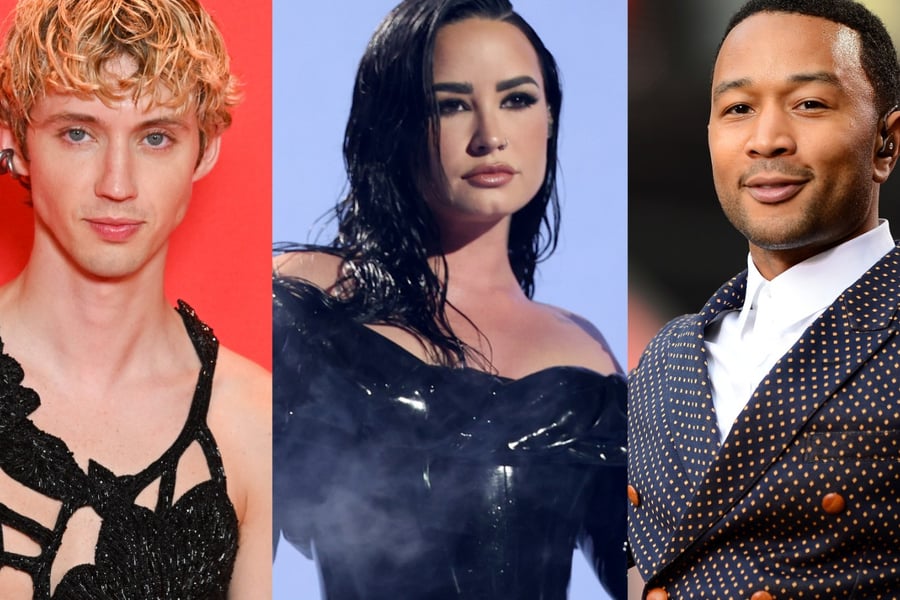YouTube is launching a feature that will give select users the ability to make music with the artificial intelligence-generated vocals of several prominent artists, the company announced late Wednesday.
The experiment, called Dream Track, is a text-based feature that allows users to make a request for a song by describing qualities such as the song’s mood or concept, and the AI will generate the music. As of launch, nine artists — Demi Lovato, Alec Benjamin, Charlie Puth, Charli XCX, John Legend, Sia, T-Pain, Troye Sivan, and Papoose — are lending their voices for Dream Track, and the experiment will only be available for a small group of users.
Dream Track song snippets will be up to 30 seconds long, the company said in a blog post announcing the feature. Lyor Cohen, YouTube’s global head of music, and Toni Reid, VP of Emerging Experiences and Community, described it as “an experiment designed to help explore how the technology could be used to create deeper connections between artists and creators, and ultimately, their fans.”
“Combined, these experiments explore the potential of AI features to help artists and creators stretch their imaginations and augment their creative processes,” Cohen and Reid wrote. “And in turn, fans will be able to connect to the creatives they love in new ways, bringing them closer together through interactive tools and experiences. All of this will help us iterate and enhance the technology, informing applications for the future.”
Dream Track was one of several new AI music features YouTube and Google announced. The company also said it would launch more AI music tools later this year that the executives said could further streamline the song-creation process. The AI content produced on YouTube’s features will also be watermarked for disclosure, the company said.
“Imagine being able to more seamlessly turn one’s thoughts and ideas into music; like creating a new guitar riff just by humming it or taking a pop track you are working on and giving it a reggaeton feel,” Cohen and Reid said. “We’re developing prospective tools that could bring these possibilities to life and Music AI Incubator participants will be able to test them out later this year.”
The artists themselves stated they view the new feature as a test for what AI music creation can do. Charli XCX said in a statement: “When I was first approached by YouTube I was cautious and still am, AI is going to transform the world and the music industry in ways we do not yet fully understand. This experiment will offer a small insight into the creative opportunities that could be possible, and I’m interested to see what comes out of it.”
Love Music?
Get your daily dose of everything happening in Australian/New Zealand music and globally.
In a separate statement, Demi Lovato shared, “My career has been about pushing boundaries of and creating the most interesting music for my fans. I am open minded and hopeful that this experiment with Google and YouTube will be a positive and enlightening experience.”
Dream Track’s described functionality is reminiscent of Google’s MusicLM, which similarly allowed users to create music based merely on text prompts, but while MusicLM was only instrumental, Dream Track features pop-star vocals. The company didn’t specify what the Dream Track artists’ AI was specifically trained on, nor has it indicated if or when the beta would become available to a wider set of users.
AI music — particularly AI-generated voice clones — drew major headlines (and industry scrutiny) this year after several tracks, such as the Drake and Weeknd-cloned “Heart on My Sleeve,” went viral. Universal Music Group, Drake and the Weeknd’s record label and the world’s largest music company, had been particularly vocal about the need for streaming services to support artists’ rights and discourage infringement from AI.
Months after the song caught fire, UMG and YouTube announced a set of principles and an AI incubator together in August. In a statement regarding the new project, UMG CEO Lucian Grainge further called upon the need to work with the emerging technology while doing it in a way that doesn’t impede on artists’ rights.
“We have a fundamental responsibility to our artists to ensure the digital ecosystem evolves to protect them and their work against unauthorized exploitation, including by generative AI platforms,” Grainge said. “At the same time, we must help artists achieve their greatest creative and commercial potential — in part by providing them access to the kind of opportunities and cutting-edge creative tools made possible by AI.”
Robert Kyncl, CEO of Warner Music Group and a former YouTube executive himself, similarly described the beta as chance for tech and music companies to test AI together.
“With each major leap in technology, the music industry navigates a fresh set of challenges and opportunities,” Kyncl said in a statement. “It’s not always the case that, from the outset, tech platforms partner with artists, songwriters, labels, and publishers to experiment, iterate, and find possible solutions. YouTube is taking a collaborative approach with this beta. These artists are being offered the choice to lean in, and we’re pleased to experiment and find out what the creators come up with.”
From Rolling Stone US



































